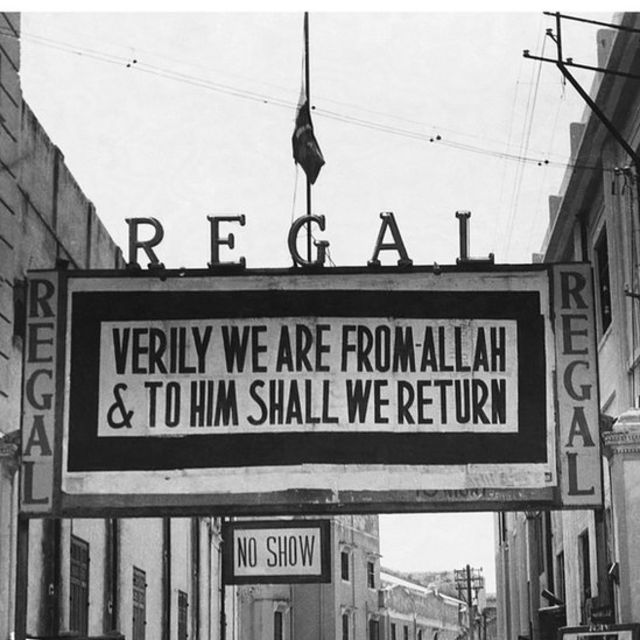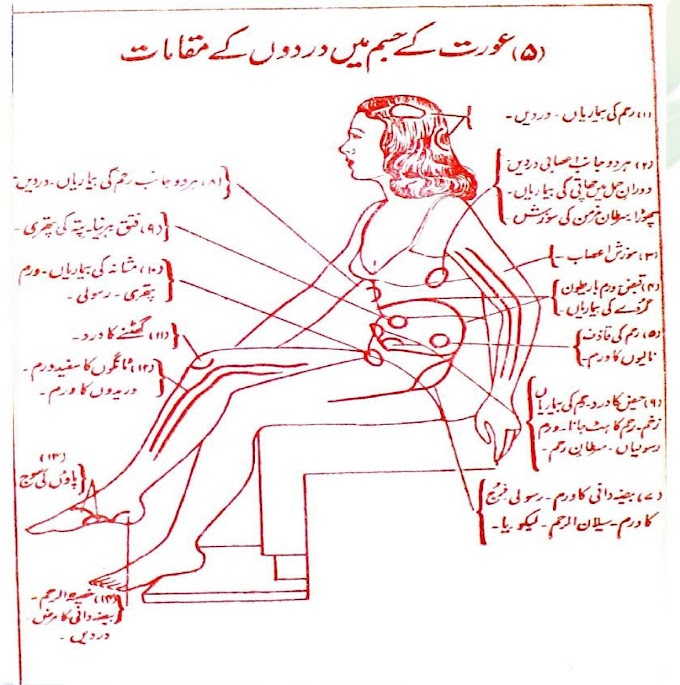This was the day on July 14, 1948, when the then Governor-General Muhammad Ali Jinnah was transferred from Quetta due to illness. He lived only 60 days after that and died on September 11, 1948. These last 60 days of Baba Pakistan are the subject of this article.
To this day, no solution has been found to this mysterious corridor. Who was advising 'Quaid-e-Azam' Muhammad Ali Jinnah to go on a pilgrimage from Quetta due to a serious illness?
Ziarat is famous all over the world for its pine trees and is located at an altitude of 2449 meters, 133 km from Quetta. This place is called Ziarat instead of the last resting place of an elderly Kharori Baba and Jinnah's resting place or 'Quaid-e-Azam Residency' is located at a distance of 10 km from Ziarat.
His sister Fatima Jinnah wrote in her book 'My Brother' that Jinnah's decision to relocate the pilgrims from Quetta was a personal one as he was not getting a chance to rest in Quetta due to government and non-government engagements. He was constantly receiving invitations from various organizations and leaders to attend and address his gatherings.
However, it remains to be seen who Jinnah told about the visit and who advised him to go there.
July 13-21: Avoid doctor's advice
Even after reaching Ziarat, he did not pay attention to seek treatment from any qualified doctor but in the same days it was reported that famous Dr. Riaz Ali Shah has come to visit one of his patients. Fatima Jinnah told her brother that the visit of Dr. Riaz Ali Shah should be taken advantage of, but he vehemently rejected the suggestion, saying that he did not suffer from any more serious illness and if only his stomach was a little better. If they start digesting properly, they will soon be healthy again.
According to Fatima Jinnah: "He always avoided the advice of doctors on what to do, what to eat, how much to eat, when to sleep, and how long to rest. This same old habit of avoiding treatment was recurring.
But he was soon forced to give up the habit. Within a week of his arrival, his condition worsened to the point that for the first time in his life, his health became a source of concern for him. Until now, he thought he could control his health, but on July 21, 1948, just a week after arriving at the shrine, he admitted that he no longer had any health risks. And now they really need good medical advice and attention.
Fatima Jinnah says that as soon as she came to know about her brother's intention, she sent a message through her private secretary Farrukh Amin to Cabinet Secretary General Chaudhry Muhammad Ali asking him to send a letter to Dr Colonel Elahi Bakhsh, a prominent physician from Lahore. Arrange for a plane visit.
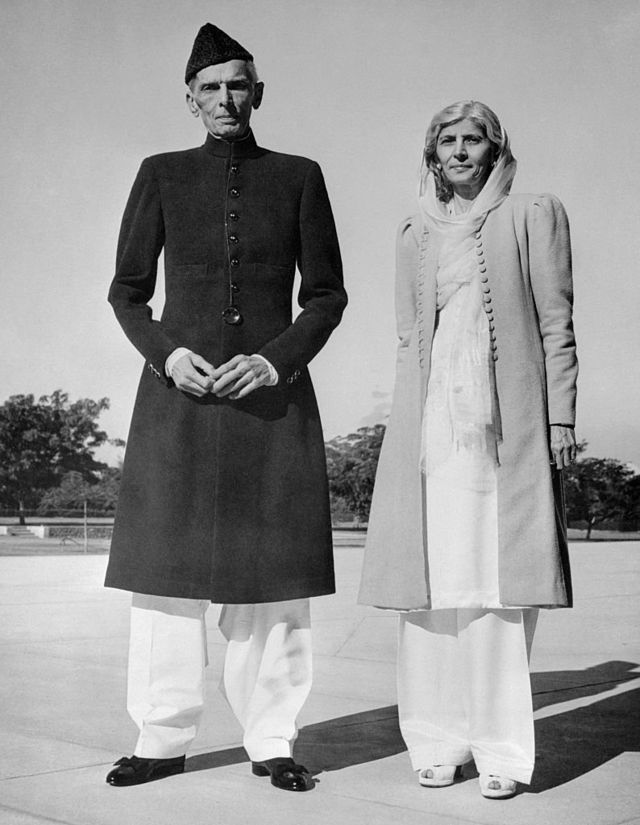
،Image source Getty Images
, Photo caption
Fati and Jinn
July 23 to July 29: Secrets hidden in a Bombay vault:
But when Dr. Elahi Bakhsh gave a cursory examination of Jinnah, he came to the conclusion that his stomach was fine but the condition of his chest and lungs was not satisfactory. On the advice of Dr. Elahi Bakhsh, Dr. Siddiqui, a civil surgeon from Quetta, and Dr. Mahmood, a clinical pathologist, arrived in Ziarat the next day with the necessary equipment and supplies. He immediately tested Jinnah, the results of which confirmed Dr Elahi Bakhsh's fears that he was suffering from tuberculosis.
Dr. Elahi Bakhsh first informed Fatima Jinnah about Jinnah's illness and then on her instructions his patient was also informed. Dr. Elahi Bakhsh writes: "I was deeply moved by the way the Quaid-e-Azam heard my assessment."
In an interview, Chaudhry Muhammad Hussain Chatha told Zameer Ahmed Munir that when Dr Elahi Bakhsh told Jinnah that he was suffering from tuberculosis, Jinnah replied: 'Doctor, I have known this for 12 years. I did not show my illness just so that Hindus would not wait for my death.
Larry Collins and Dominic Lapierre, authors of the famous book "Freedom at Midnight" on the subcontinent's struggle for independence, have rightly stated: Knowing the extraordinary secrets that were kept in the vaults of the offices of Dr. JAL Patel, a famous physician in Bombay, India might never have been divided and today the tide of Asian history is flowing in a different direction. Would have It was a secret the British Secret Service was not familiar with. The secret was an X-ray of Jinnah's lungs, in which two large spots the size of a table tennis ball were clearly visible on the lungs of the founder of Pakistan. There was a spear around each spot, which made it very clear how aggressively TB had invaded Jinnah's lungs.
Dr. Patel never told anyone about these X-rays at Jinnah's request. However, he did advise Jinnah for treatment and recovery that his cure lies solely in rest. But where did the founder of Pakistan have time to rest?
He had little time and a lot of work and could never afford regular treatment. He had such an iron will that he did not even inform his dearest sister about his illness, even though he shared his secret with Dr. Elahi Bakhsh at the time when he himself had made the same diagnosis. ۔
Mountbatten later told Larry Collins and Dominic Lapierre in an interview that all power was in Jinnah's hands. "If someone had told me that they would die in a very short time, I would not have allowed India to be divided. It was the only way for India to remain united. The only stepping stone was Mr. Jinnah, the other leaders were not so inflexible and I am sure that the Congress would have come to an understanding with them and Pakistan would not have come into existence.
Dr. Elahi Bakhsh writes: 'When the disease was diagnosed, on the one hand, I made appropriate adjustments in treatment and diet, and on the other hand, telegraphed from Lahore to Dr Riaz Ali Shah, Dr SS Alam and Dr Ghulam Muhammad that they needed the necessary equipment. Arrive immediately with luggage and travel X-ray equipment.
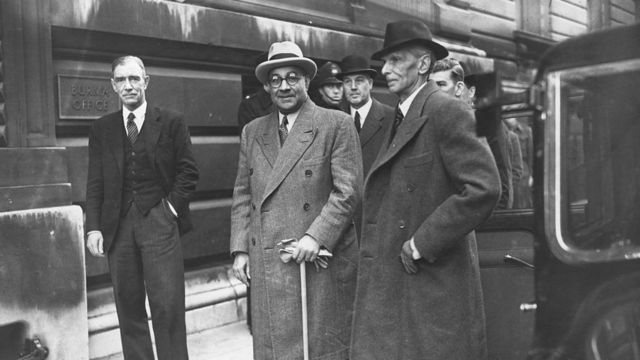
, Image source Getty Images
, Photo caption
July 30: Meeting with the Prime Minister and refusing to take Jinnah's medicine:
On July 30, 1948, all of Jinnah's physicians arrived in Ziarat. A day earlier, a trained nurse from Quetta, Phils Dulham, had also been invited to visit the Father of the Nation. Now, God forbid, the possibility of Jinnah's regular treatment had arisen that an incident had taken place on the same day on which there are still mysterious veils of silence and those who are aware of it insist that this The incident should still be kept a secret.
This incident was first recorded by Fatima Jinnah in her book 'My Brother'. He wrote this book with the help of G. Allana. After his death, the draft became available in papers now preserved in the National Archives of Islamabad.
The draft was published in book form by the Quaid-e-Azam Academy, Karachi in 1987, but the paragraphs that she had written in reference to an incident that took place on July 30, 1948 were omitted from the book.
She wrote in her book: “One day in late July, Prime Minister Liaquat Ali Khan and Chaudhry Muhammad Ali paid a surprise visit without any prior notice. The Prime Minister asked Dr. Elahi Bakhsh what was his diagnosis of Jinnah's disease. The doctor said that he had been called by Fatima Jinnah and he could only tell her about his patient. The prime minister insisted that as prime minister, he was concerned about the health of the governor-general, but even then Dr Elahi Bakhsh said he could not tell anyone without his patient's permission.
Fatima Jinnah further writes: "I was sitting next to my brother when I was told that the Prime Minister and the Secretary General of the Cabinet wanted to meet him. When I informed my brother about this, he smiled and said, Fati! "You know why he came here. He wants to see how serious my illness is and how long I will live."
A few minutes later, he said to his sister: 'Go down ... Tell the Prime Minister I will meet him too.
Fatima Jinnah asked her brother, "It is too late, you will meet him in the morning." But Jinnah ordered, "No." Let him come now, let him see with his own eyes. '
She writes: "The meeting lasted for half an hour. As soon as Liaquat Ali Khan came back downstairs, I went upstairs to my brother. He was very tired and his face was downcast. They asked me for fruit juice and then invited Chaudhry Muhammad Ali inside who stayed with them for 15 minutes. Then when they were alone again, I went inside to them. I asked if he would like some juice or coffee but he did not answer. He was deep in thought. So it was time for dinner. The brother said to me, "You better go downstairs and eat with them."
"No," he insisted, "I'll sit next to you and eat here."
"No," said the brother, "it's not fair." They are our guests here, go and eat with them. '
Fatima Jinnah then writes: 'At the dinner table I found the Prime Minister in a very pleasant mood. They were telling jokes and making jokes while I was trembling with fear for the health of my brother who was lying on a sick bed upstairs. During the meal, Chaudhry Muhammad Ali was silently lost in thought. I went upstairs before the meal was over. When I entered the room, my brother smiled at me and said, "Fati, you must work hard." I tried hard to hide the tears that came to my eyes.
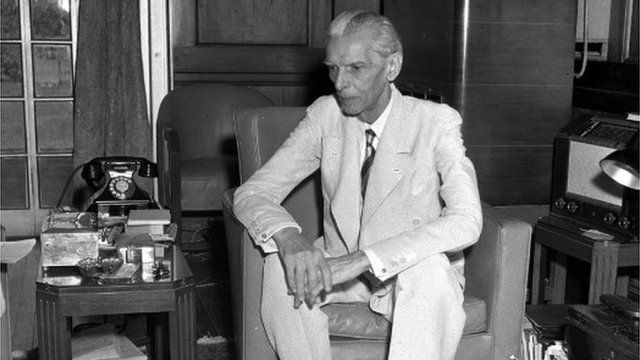
, Image source Getty Images
In the letter, MA Rehman had written to him that Humayun Khan, son of Dr Colonel Elahi Bakhsh, had also told him about the incident. According to this tradition, the effect of the medicine on the Quaid-e-Azam was becoming more and more favorable and he was gradually recovering. One day Liaquat Ali Khan came to visit Quaid-e-Azam. He stayed with them for about an hour. Meanwhile, it was time to take medicine, but my father could not go inside and give medicine to Quaid-e-Azam because the meeting that was taking place inside was very secret. So they waited outside so that they could give medicine to Quaid-e-Azam as soon as the meeting was over.
When Liaquat Ali Khan left the room, my father immediately entered the room and wanted to give medicine to Quaid-e-Azam. He saw that Quaid-e-Azam was suffering from severe anxiety and depression and he refused to take medicine and said that he did not want to live anymore. After that, despite his father's best efforts and insistence, the Quaid-e-Azam refused to cooperate with his doctor.
Humayun Khan added: “Immediately after the death of Quaid-e-Azam, Liaquat Ali Khan sent for my father. Liaquat Ali Khan asked him what Quaid-e-Azam had said to him when he came out of the room on the day of Ziarat and he went inside. My father tried to reassure Liaquat Ali Khan that the Quaid had not spoken to me about the conversation between the two of you except that the Quaid had stopped taking medicine after that, but Liaquat Ali Khan was not satisfied with my father's answer.
Liaquat Ali Khan kept trying to subdue my father for a long time. When their meeting ended and my father started to leave the room, Liaquat Ali Khan called him back and warned him that if he heard anything about this meeting from any other source, he, my father, would face serious consequences. Will have to suffer.
This is the narration narrated by Humayun Khan, the son of Dr. Col. Elahi Bakhsh, which has reached us through AR Rehman and Sharifuddin Pirzada. There is room for debate on his health as Dr. Colonel Elahi Bakhsh himself has given a different statement in his book 'The Last Days of Quaid-e-Azam'.
He writes: "When I went downstairs, the Prime Minister met in the drawing room. He had accompanied Mr. Muhammad Ali on the same day to inquire about the mood of Quaid-e-Azam. He eagerly inquired about the condition of Quaid-e-Azam and expressed satisfaction that the patient has confidence in his doctor and insha'Allah it will have a good effect on his health. He stressed that the root cause of Quaid-e-Azam's long illness must be traced. I assured him that despite Quaid-e-Azam's critical condition, he was hopeful that if he took the modern medicine that was being imported from Karachi, he might recover. The most promising thing is that the patient has a strong immune system. The Prime Minister was deeply saddened by the illness of his leader and old comrade. I was deeply moved by his heartache.
What is the reality now? Only five or six personalities who were present at the time knew about it. Unfortunately, none of them are alive now. Even after 72 years and months have passed since the incident, there is no source left to inform the nation about the reality of this incident.
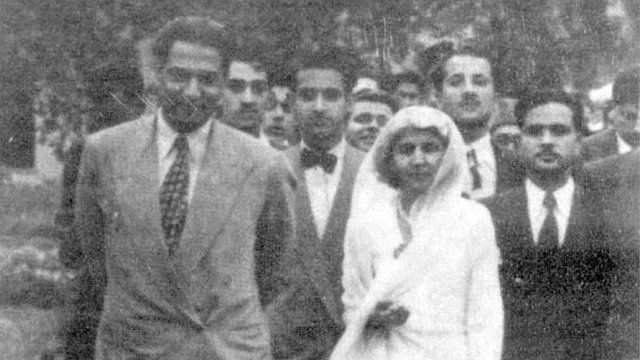
, Photo source PAKISTAN CHRONICLE
, Photo caption
Fatima Jinnah and Dr. Elahi Bakhsh
July 31-August 12: Jinnah's favorite cook
But just a day after his arrival in Lahore, he was urged to return immediately with Dr. Alam with an ultraviolet apparatus and on August 6, he arrived with the device. Dr. Riaz Hussain Shah told him that in his absence Jinnah became very weak and his blood pressure had dropped a lot but the injection had improved his condition.
The next day, August 7, 1948, was Eid al-Fitr. The same evening, Jinnah was treated with electromagnetic radiation, but it did not work out and his legs became swollen.
On August 9, the doctors opined that the height of the pilgrimage was not good for the patient and he should be shifted to Quetta. Jinnah was initially unwilling to travel before August 15 because it was decided in June of that year that Independence Day would be celebrated on August 14 instead of August 15. But at the insistence of his doctors, he agreed to go to Quetta on August 13.
At the time of Jinnah's visit, Dr. Colonel Elahi Bakhsh asked Fatima Jinnah: "How can you persuade your brother to eat something, tell him something of his special choice."
Fatima Jinnah said that she used to have a cook in Bombay who used to prepare some food that her brothers used to eat with great relish, but after the formation of Pakistan, that cook went somewhere. He remembered that he was a resident of Lyallpur (now Faisalabad) and said that maybe he could get some information from there.
Hearing this, Dr. Sahib requested the Punjab government to find the cook and send him on a pilgrimage immediately. Somehow the cook was found and he was immediately sent on a pilgrimage, but Jinnah was not told about his arrival.
At the dinner table, they were surprised to see their desired food and ate a good meal. Jinnah asked who made these dishes today. His sister said that the Punjab government has found our Bombay cook and sent him here and he has made the food of your choice.
Jinnah asked his sister who had paid for the search for the cook. He said that this deed has been done by the Punjab government and no one else has spent it. Jinnah then called for a file on the cook and wrote on it, "It is not the job of any government agency to provide the cook and food of the governor general's choice." Make a statement of expenses so that I can pay it out of my own pocket 'and that's what happened.
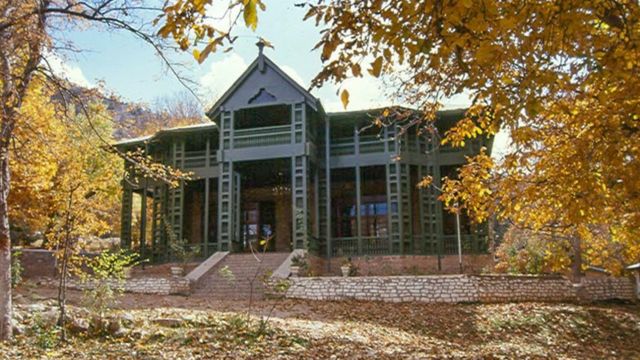
،Image source PAKISTAN CHRONICLE
, Photo caption
Visit of 'Quaid-e-Azam Residency'
August 13 to August 28: Recovery and readiness to return to Karachi.
After arriving in Quetta on August 16, his doctors again took X-rays and other tests. X-ray results showed Jinnah's health was gradually improving, and test results reinforced that view. So the doctors allowed Jinnah to read the newspapers to keep him busy and he was not even barred from handling some office files.
After arriving in Quetta, Jinnah's health had improved so much for a few days that he started working one hour a day without feeling tired. His stomach was also working better, so much so that one day he ate the halwa in spite of the doctors' advice. A few days later, he started smoking with the permission of doctors. Doctors believed that if a regular smoker asked for a cigarette during his illness, it was a sign of a return to his health.
Now the doctors further examined Jinnah's health and asked him to move from Quetta to Karachi but Jinnah, lying on a stretcher, did not want to go to the Governor General's House.
When he was repeatedly requested, he agreed to go to Karachi on the condition that he would stay at the residence of the Nawab of Bahawalpur in Malir and not at the Governor General's House. In those days the Nawab of Bahawalpur was residing in England.
Jinnah was told that he would have to write a letter to stay at his residence, but his principledness did not allow him to do so. He did not want to seek formal permission from the Nawab of a state in his country to get any kind of facility while he was the Governor General of the country.
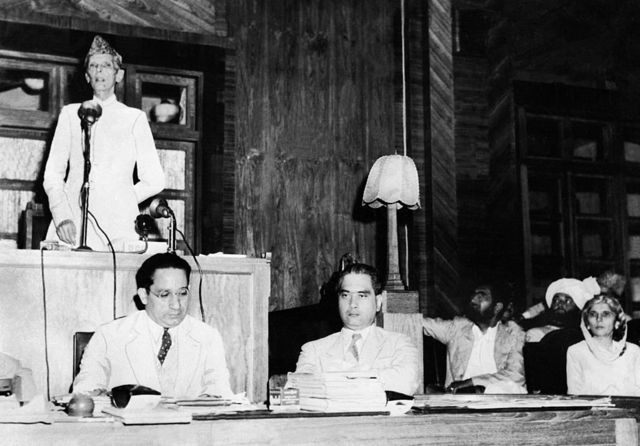
, Image source Getty Images
, Photo caption
Jinnah's first speech to the Assembly after the formation of Pakistan on August 15, 1947. Fatima Jinnah can also be seen to her right29
August: 'I'm done...
On August 29, 1948, Dr. Elahi Bakhsh examined Jinnah again. He writes: "After inspecting the Quaid-e-Azam, I have expressed the hope that the state you have created will live on for a long time to fully stabilize and consolidate it." It didn't even occur to me that they would be saddened by my feelings. I will never forget his words and his depressing and depressing tone.
Addressing Dr Elahi Bakhsh, Jinnah said: "You remember, when you first visited, I wanted to live but now my death is equal to my life."
Dr. Elahi Bakhsh writes that tears came to his eyes when he uttered these words. Dr. Elahi Bakhsh was stunned to see a man who was considered completely devoid of emotions and as hard as steel. Jinnah was gradually recovering at the time, so he was even more surprised by Jinnah's debilitated nature. When he asked the reason, Jinnah said: "I have done my job."
Dr. Elahi Bakhsh writes: "This answer only confused me and made me think that they want to keep the real thing secret and the reason they have given is to avoid it. I kept wondering if his work was incomplete five weeks ago today and has now suddenly reached completion. I couldn't help but feel that there was something that had made her want to live.
The same story is written by Fatima Jinnah, but in slightly different words. She writes: "In the last days of August, Jinnah was suddenly overwhelmed with despair. One day, looking into my eyes, he said, "Fati ... I'm not interested in living anymore. The sooner I leave, the better. "
"It simply came to our notice then. I shuddered, as if I had touched a bare electric wire. Still, I worked patiently and said: Jinn! You will get better soon. The doctors have high hopes.
He smiled when he heard me say this. Maroni was hidden in that smile. He said: No ... I don't want to live anymore
‘
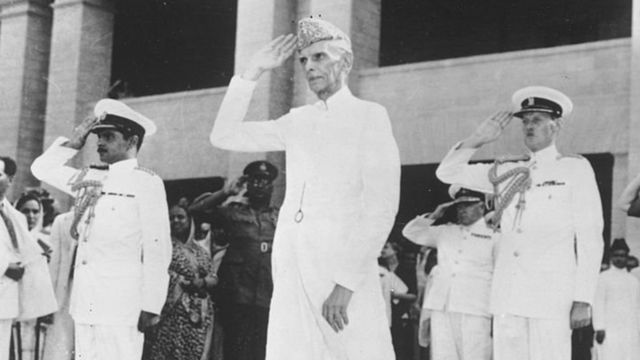
،Image source Getty Images
September 1 to September 10: Hemorrhage and preparations to return to Karachi.
September 11: From Quetta to Karachi in two hours, from the airport to the residence in two hours.
On September 11, 1948, Jinnah was put on a stretcher and flown to his Wii King plane. As he was being taken to the plane, the crew greeted him and then everyone was surprised to see that Jinnah responded immediately despite his great relief. The movement of his hand made him feel that he was fully aware of the requirements of discipline even on his death bed.
The journey from Quetta to Karachi took two hours. Meanwhile, Jinnah was very restless. They were given oxygen again and again, this duty was sometimes performed by Fatima Jinnah and sometimes by Dr. Elahi Bakhsh.
Dr Mistry, Nurse Dunham, Naval ADC Lieutenant Mazhar Ahmed and Farrukh Amin, Jinnah's assistant private secretary, were also on board. The plane carrying Jinnah landed at Maripur airport at 4.30 pm. No key members of the government were present to pick him up at Jinnah's behest, nor was the district administration aware of his arrival. Among those who greeted him at the airport was Lt. Col. Jeffrey Knowles, the governor general's military secretary.
The Governor-General's staff put him on a stretcher and transported him to a military ambulance. Fatima Jinnah and Phils Dunham sat with him, while Dr. Elahi Bakhsh, Dr. Mistry and Col. Jeffrey Jinnah boarded the Cadillac car.
Jinnah's ambulance must have traveled only four miles when its engine stopped with a jolt due to running out of petrol. Cadillac cars, trucks and other vehicles following the ambulance also stopped.
The condition of the Quaid was not such that even a moment was wasted on the way. The driver struggled to fix the engine for 20 minutes. Finally, on the orders of Fatima Jinnah, the military secretary left in his car to take another ambulance and Dr. Mistry was with him.
There was severe confinement in the ambulance. It was also becoming difficult to breathe. Hundreds of flies hovered around Jinnah's face, unable to fly. Fatima Jinnah and Sister Dunham took turns fanning them with a piece of cardboard. Every moment was passing in great agony.
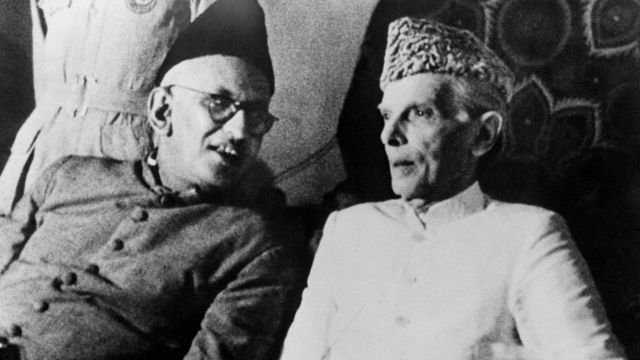
،Image source Getty Images
, Photo caption
Jinnah and II Chandragar
It was too late for Colonel Knowles and Dr. Mistry to leave, but the engine of the military ambulance did not work properly and no other alternative arrangements could be made. Dr. Elahi Bakhsh and Dr. Riaz repeatedly saw the pulse of their leader which was gradually sinking. It is not even possible to transport the father of the nation from the ambulance to the car because the stretcher could not be placed in the car and Jinnah himself could not sit or lie in the car.
On this occasion, it is very surprising that no one in the capital even bothered to find out why Jinnah, despite landing at the airport at four o'clock, has not yet reached the Governor General's House, where his convoy is and how he is doing. Is.
Some people say that Jinnah's arrival in Karachi was kept secret but weren't the top government officials really aware of his arrival? Didn't anyone know that the Governor General's special plane has been sent to Quetta this morning and he is expected to arrive in the capital at any time in Syria?
It is learned that on September 4, 1948, when the Secretary General of the Cabinet, Chaudhry Muhammad Ali, returned to Karachi after seeing the critical condition of the Governor General, an emergency meeting of the Cabinet was held at the Prime Minister's House that evening. It is impossible that Jinnah's illness was not discussed at the meeting.
Later, when Mir Laiq Ali returned to Karachi without meeting the Governor General, he informed Liaquat Ali Khan, Chaudhry Muhammad Ali and Sir Zafarullah Khan at the residence of Ghulam Muhammad about Jinnah's very worrying condition. Laiq Ali's "everyone was shocked."
Against this backdrop, what does the arrival of Jinnah in Karachi indicate about the helplessness and ignorance of the government? This question is still a matter of concern today.
Sri Prakash, India's first High Commissioner to Pakistan, also mentioned the incident in his book Pakistan: Establishment and Early Situations. He wrote: “In those days Jamshed Mehta was in charge of the local Red Cross and was respected by everyone in Karachi. He later told me that I had received a message in the evening that a man was very ill. Can you send an ambulance for this? The incident took place at 5.30 pm.
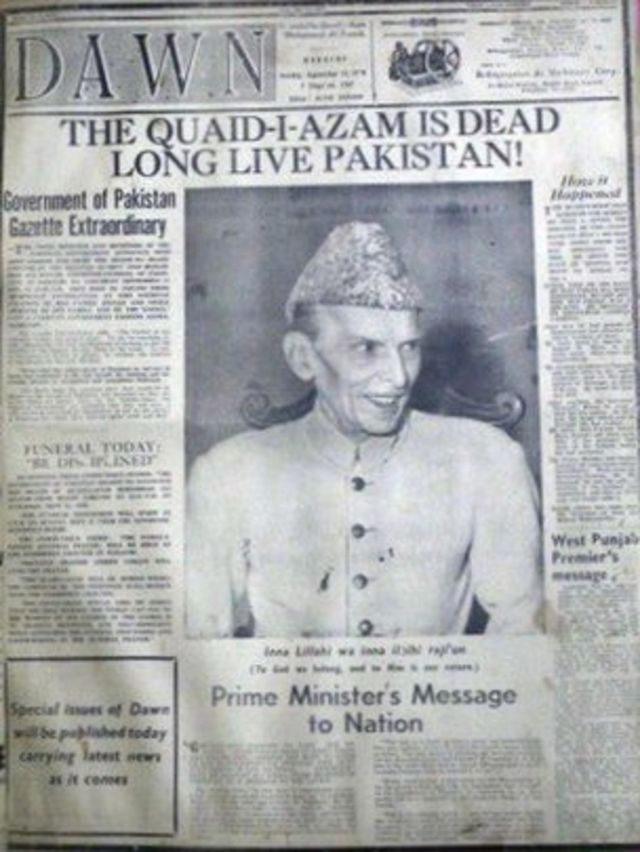
Photo source DAWN Group / Pakistan Hearald Publications
Photo caption
The cover of the Dawn newspaper published the day after Jinnah's death.
By God, Colonel Knowles and Dr. Mistry returned with another ambulance. It can be speculated that this will be the same ambulance mentioned by Sri Prakash.
Jinnah was put on a stretcher and taken to the ambulance, where he arrived at the Governor General's House at 6:10 p.m. The nine-mile journey from the airport to the residence, which should have taken a maximum of fifteen to twenty minutes, took about two hours. That is, two hours from Quetta to Karachi and two hours from the airport to the Governor General's House.
Jinnah made this painful journey in a world of cosmopolitanism that has no precedent in our history and no justification.
Sri Prakash has written in the above book that: “At the time of Mr. Jinnah's death, there was a cocktail party at the French embassy. When I mentioned the arrival of Mr. Jinnah in this party from Nawabzada Liaquat Ali Khan, he said that Mr. Jinnah is a simple man, so he did not like the commotion when he arrived.
After arriving at the Governor General's House, Jinnah lived for only four and a half hours, during which time he almost fell asleep.
The doctors gave him an injection of force and according to Dr. Elahi Bakhsh, when he regained consciousness and told Jinnah that he would recover soon, he said softly: "No ..." I will not live. ”According to Dr. Elahi Bakhsh, these were the last words of Quaid-e-Azam Muhammad Ali Jinnah.
Dr. Riaz Ali Shah has written that Jinnah's last words "Allah ... Pakistan, while Fatima Jinnah writes in 'My Brother': 'Jinnah, after two hours of restful and restless sleep, opened his eyes, called me with his head and eyes and made one last attempt to talk to me. Out of their lips came a world of whispers: Fati ... Goodbye... La ilaha illallah Muhammad al-Rasoolullah. ”Then his head slowly tilted to the right and his eyes closed.
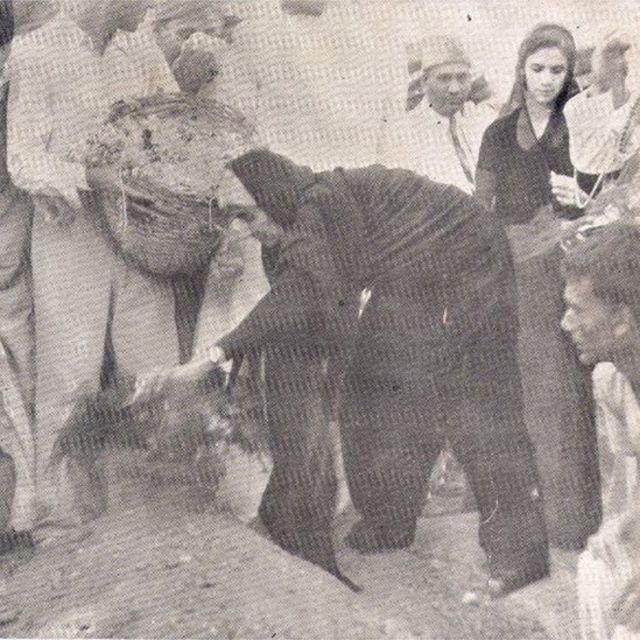
Photo source PAKISTAN CHRONICLE
Photo caption
Fatima Jinnah lays flowers at her brother's shrine
